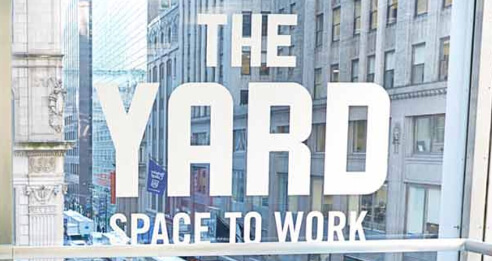
Largest Coworking Companies


Coworking is an ongoing trend in many industries from the insurance to high-tech to retail and sports. In light of this, branded coworking spaces seem to be more of a necessity rather than just a competitive advantage. Well-established companies, as well as innovative startups, seem to have realized how coworking helps to diversify and grow a business.
Technological think-tanks like IBM, Google, Verizon, and Microsoft have shown great faith in the benefits of coworking by moving entire departments and headquarters to WeWork facilities. Commercial real estate companies soon followed the example. Some of the biggest players in the industry like Henry S. Miller in Texas have built their coworking spaces to increase flexibility that appeals to all stakeholders.
Big companies that use coworking admit that coworking provides room for innovation, collaboration, and creativity that empower employees, fuel their desire to exceed expectations as well as provide them with a new means of reaching corporate goals.
Coworking at a space within an existing company is also called “corpoworking.” The concept combines corporate and coworking approaches in which a company creates a flexible workspace within its main building or outside of it and invites employees to come there whenever they want. This allows employees to work in a more relaxed environment, be more collaborative with team members and meet clients without the pressures of a formal, more traditional office environment.
There are several features that make coworking spaces so popular in companies:
Coworking spaces provide employees with greater flexibility and freedom of action. The companies try to signal to their staff that they are open and that they do not exercise any office rules within coworking spaces. Such a model enhances internal collaboration that echoes in improved creativity, innovation, and collaboration. Employees feel empowered to make their own choices and work in the regime that fits them best.
Transformation is one of the goals that coworking tries to achieve. The business world and the modern lifestyle are getting faster, and formal offices are not equipped to catch up with the latest trends. Coworking spaces advocate for positive changes in the company that start with leadership. If management decides on creating a coworking space within or outside their company, this sends a positive signal to the whole team.
Lots of studies and scientific reports confirm that coworking spaces enhance innovation and creative thinking. These spaces are characterized as workspaces with new rules that actually establish the absence of any rules. Companies can design coworking spaces in a different way: Office coworking can be organized as open houses that are open for everyone and fit best for brand-building, or as campsites, where employees can enter with invitations only to co-locate with peers.
Nothing promotes the feeling of belonging more than coworking space. Employees who once felt the benefits of such work routine will never return to the office completely. Coworking spaces save team members from monotonous workday that lasts for 8 hours. They start feeling that they belong to something unique and that their membership in a team indeed makes a difference.
Coworking spaces allow for better task delegation. There is no formality or strict subordination there. Thus, tasks go to the person who has the best chances of doing things right. Employees have greater accessibility to the right contacts and services to complete tasks. For managers, coworking resolves simple tasks that can be daunting and time-consuming in a traditional office. It improves overall productivity. Apart from this, coworking is all about teamwork. In the unity of a team, employees work harder to achieve the expected results than they do if they work alone.
Companies start opening coworking spaces because they see their benefit. It is not only about boosting productivity but also about promoting the company’s image. Such spaces are innovative; thus, having one of them means that the company is dedicated to advancement and flexibility. It sends a positive signal to future employees that are flattered by the offered work conditions. At the same time, current teams take pride in their workplace.
Coworking promotes the cooperation of like-minded people. Under any other circumstances, they would be dispersed across different departments. It promotes teambuilding that only strengthens community support among employees. This feeling is definitely the most notable achievement of coworking space creation. Employees work effectively in a team as well as independently, but they also know that they can count on help.
Coworking spaces are usually the most technologically advanced places within the company. Since they are often newly designed, they incorporate all features of the workplace of the future. Employees tend to enjoy the benefits of technological advancement. Thus, they will be definitely attracted by the opportunity to work in the technologically equipped space.
Coworking is still a relatively new approach in corporate organizations. However, it has great potential to boost productivity and employee satisfaction. Research shows that companies are starting to design their own coworking spaces not only to diversify their offerings for partners and employees, but also to benefit from the financial opportunities and the more flexible and casual culture that they facilitate.
Save your community manager 41 hours each week—learn how The Yard did it with cloud-based access control.
Read the Case StudyFree access to our best guides, industry insights and more.
